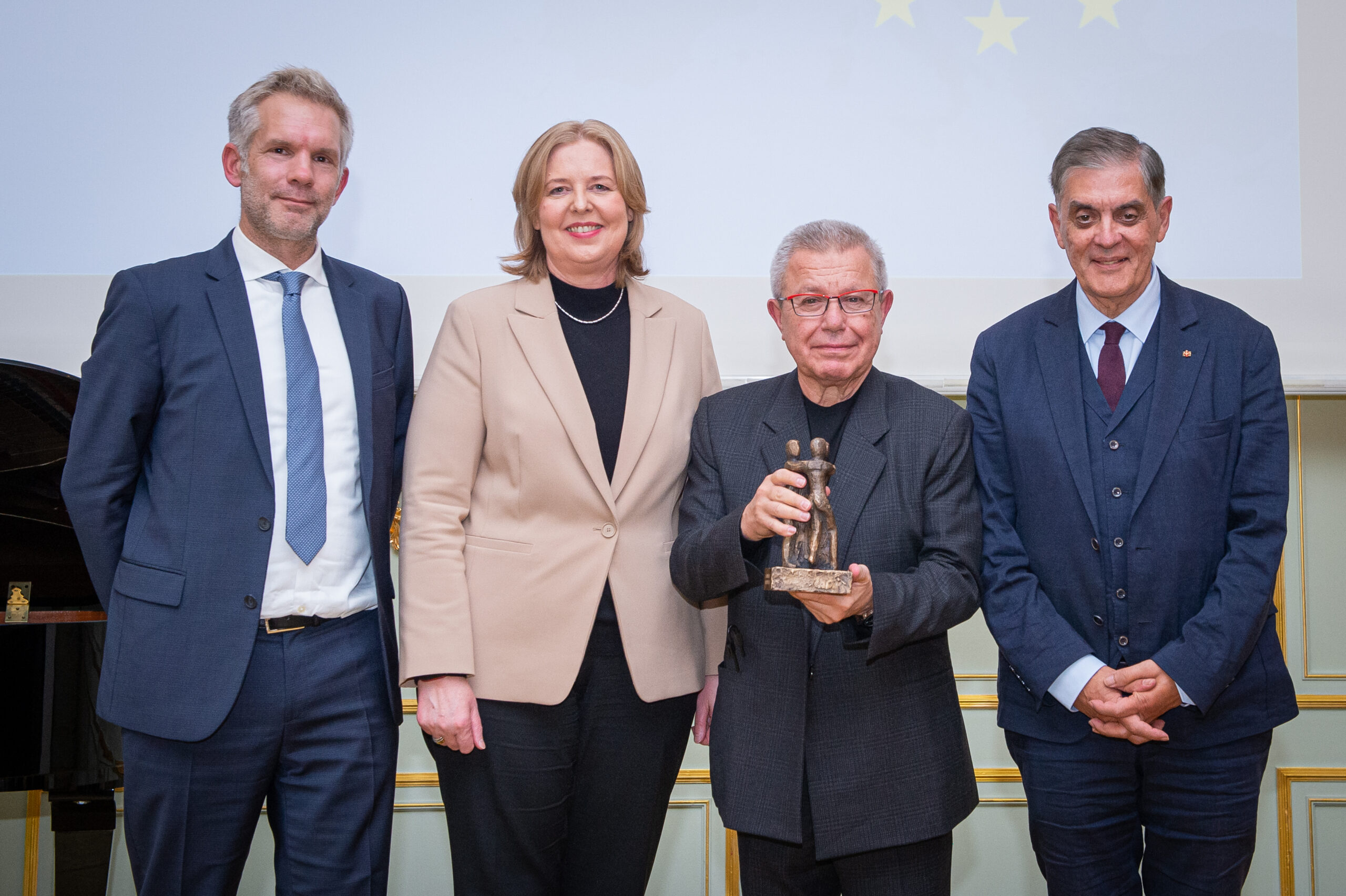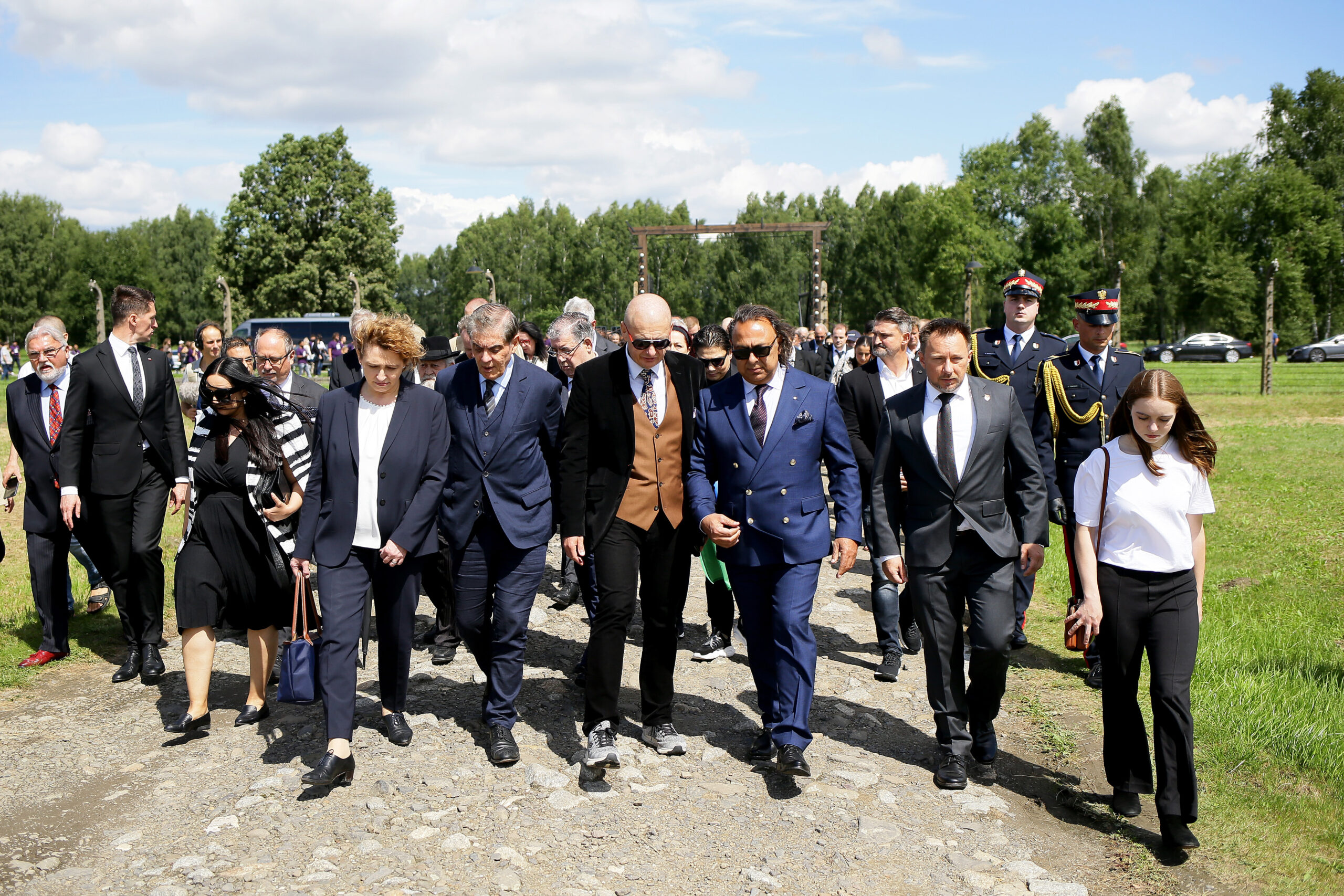Tilman Zülch
Tilman Zülch was born on the 2 September 1939 in Libau (today Libina) in what was then called Sudetenland. The genocide in Biafra, Nigeria, in 1968 led the student of economics and politics in Hamburg to take on the problems of genocide, displacement and racism. He founded the ‘Aktion Biafrahilfe’, which, in 1970, gave rise to the international human rights organization Society for Threatened Peoples, which has had consultative status with the United Nations Economic and Social Council since 1993. The society provides assistance to persecuted and threatened ethnic and religious minorities, nationalities and indigenous communities. Guided by the motto ‘no blind eye’, the organization always takes the side of the victims of crimes against humanity and ruthlessly names the perpetrators and their accomplices.
The Society for Threatened Peoples played an important role in the establishment of the then young civil rights movement of the German Sinti and Roma in 1979. Until then, no other organization had been willing to do so, not even one of the societies founded in Germany specifically for accounting for the past or for the maintenance of concentration camp memorials. In autumn 1978, the connection of the ‘Association of German Sinti’ and the ‘International Romani Union’ with the Society for Threatened Peoples led to systematic public relations work for the civil rights of Sinti and Roma in the Federal Republic for the first time. With their experience in working for minorities, the staff of the human rights organization provided the spokespersons of the Sinti and Roma and their organizations with an initial forum so that they could finally make their voice be heard in public.
In close cooperation with the Society for Threatened Peoples, the Association of German Sinti and other newly established regional organizations, with the involvement of the press, radio and television, drew increasing attention to the forgotten holocaust and grave cases of official racial discrimination and continued injustice. In September 1979 Tilman Zülch published the anthology ‘In Ausschwitz vergast, bis heute verfolgt’ [Gassed in Auschwitz, persecuted until today] for the Society for Threatened Peoples, which then turned into the most important book for the beginning of the civil rights work of the German Sinti and Roma in the Federal Republic of Germany.
The first international commemoration of the 500,000 Sinti and Roma murdered by the Nazis in the former concentration camp Bergen-Belsen, organized in cooperation with the Society for Threatened Peoples, was of special historical meaning. Simone Veil, then President of the European Parliament and a Jewish survivor of the Bergen-Belsen concentration camp, also spoke at the rally. This event was the starting point of a demand to the German government to recognize the genocide and to compensate the survivors. Simone Veil was awarded the European Civil Rights Prize of the Sinti and Roma in 2010 for her accomplishments in the fight for the rights of the Sinti and Roma.
Another milestone on the way to social recognition was the third Roma world congress in 1981 with 300 participants from 21 countries. Thanks to the organizational involvement by the Society of Threatened Peoples, it was possible for the cause of the Sinti and Roma to gain attention, as Simon Wiesenthal, Heinz Galinski and other guests held speeches at the congress in Göttingen, which received international media attention. Tilman Zülch and the Society for Threatened Peoples have always been the main advocates and political fighters for the human rights of the Roma minority in Kosovo and in other parts of South-East Europe affected by civil wars. After almost the entire Roma population in Kosovo was displaced, as were the Ashkali and the Egyptians, who were considered Roma, it was first and foremost the Society for Threatened Peoples that documented the displacement. Tilman Zülich had also previously repeatedly drawn attention to the situation of the Roma during the wars in Bosnia-Herzegovina and Serbia.
Special Prize Winner Amaro Drom e.V.
As part of the European Civil Rights Prize of the Sinti and Roma, the Manfred Lautenschläger foundation together with the members of the jury awards a special prize. This award, endowed with the sum of 5,000 Euros, honors members of the minority for their commitment and courage in their efforts to achieve social equality Sinti and Roma.
Amaro Drom e.V. is an intercultural youth league of Roma and non-Roma with the aim to create a space for young people to become active citizens through empowerment, mobilization, self-organization and participation. As young Roma and non-Roma, the members take on joint responsibility in society for dignity and mutual respect. The work of the association helps children and young people to develop critical, responsible and consciously acting personalities. The prerequisite for this is educational work, which focuses on the dignity and freedom of the individual.
Amaro Drom means ‘our way’ in Romany. The name was chosen because the intercultural youth self-organization brings young people together in order to ‘set off’ on a path together. Through direct encounters and dialogue, the elimination of prejudices can be successful. The work of the association is intended in particular to help children and young people to develop into critical, responsible and consciously acting fellow citizens of our society. A prerequisite for this is educational work, which focuses on people in their dignity and freedom. It aims to illuminate and represent the concerns and interests of children and young people.














